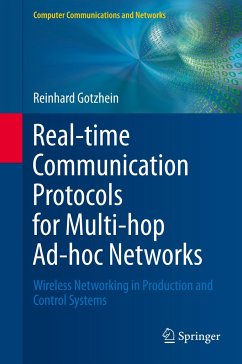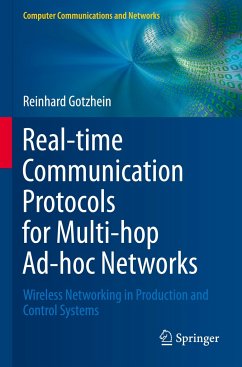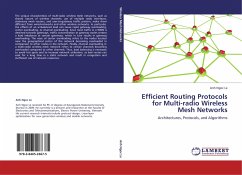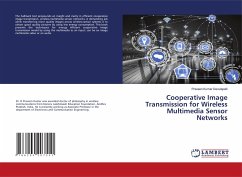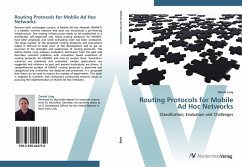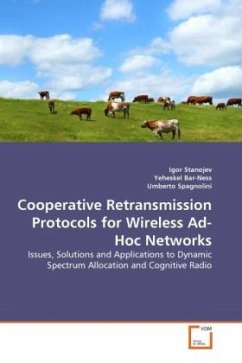
Cooperative Retransmission Protocols for Wireless Ad-Hoc Networks
Issues, Solutions and Applications to Dynamic Spectrum Allocation and Cognitive Radio
Versandkostenfrei!
Versandfertig in 6-10 Tagen
45,99 €
inkl. MwSt.

PAYBACK Punkte
23 °P sammeln!
Future wireless ad-hoc systems are expected to extensively rely on cooperation between terminals. On this line, cooperative retransmission protocols are particularly promising due to their opportunistic and flexible exploitation of both spatial and time diversity. In this book, some of the major issues that hinder the practical implementation of this technology are identified and pertaining solutions are proposed and analyzed. Firstly, cooperative retransmission protocols are reexamined in terms of energy efficiency and their limitation for short transmission ranges is observed. An optimizatio...
Future wireless ad-hoc systems are expected to extensively rely on cooperation between terminals. On this line, cooperative retransmission protocols are particularly promising due to their opportunistic and flexible exploitation of both spatial and time diversity. In this book, some of the major issues that hinder the practical implementation of this technology are identified and pertaining solutions are proposed and analyzed. Firstly, cooperative retransmission protocols are reexamined in terms of energy efficiency and their limitation for short transmission ranges is observed. An optimization effort is provided for extending an energy-efficient applicability of these protocols. Secondly, a provision is made to alleviate the altruistic relaying assumption and opportunistic mechanisms are designed that incentivize relaying via a spectrum leasing approach. It is further recognized that the proposed relaying-incentivizing schemes have an additional application in dynamic spectrum access for property-rights cognitive radio implementation. Provided solutions avoid commons-model cognitive radio strict sensing requirements and regulatory and taxonomy issues of a property-rights model.



